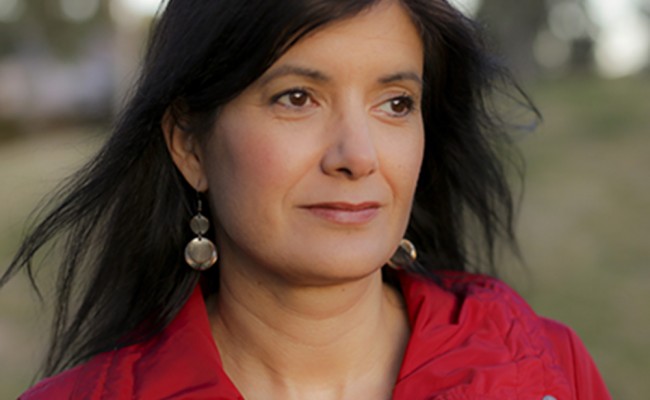Marissa McDowell, a Wiradjuri woman born in Cowra NSW, grew up in Canberra where she began writing poetry at sixteen. In her mid-twenties she shared a poem called ‘Caged’ as a father’s day gift, and started writing seriously again after joining the ‘Us Mob’ writing group in Canberra. She enjoys working in all forms of creative media. After completing a Bachelor of Arts Honours with the University of Canberra she went on to produce ten short documentaries for National Indigenous Television NITV. During this time she was the recipient of a solo photo exhibition with PhotoAccess. She is a radio producer for 2XXfm, and on game-day works at GIO Stadium Canberra as an audio visual assistant for the Brumbies and Canberra Raiders. Her poetry was recently published in the Maori literary journal Ora Nui, in a special issue featuring work by Aboriginal and Maori writers.
Burning Bridges
I aint burning all my bridges
Been walking down this road for far too long
Got no voice, got no songPaid my toll
With everything except my soul
Nothing left but dust for beggars and thievesIt’s not a walk in the park
Or a Sunday stroll
Just genocide
Justified by religion
Over a land that no-one owns
Leaders that follow
And followers that can’t leadIt’s all the same
When it comes to playing this war game
The rich get richer and fame becomes their throne
A life of the uncompassionate with no ration for changeI aint burning all my bridges
They’ve already been burnt
I aint leaving my home
It’s already left
All the humble lies amongst the rubble
And the rubble piles towards the seaWalking down this road alone
Past the fighting
Past the wrong
Towards the meek, towards the strongNo blue left in the sky
Only clouds that bleed, scream and cry
For the dying in the streets
Nothing left but the smell of rotting meat
No more pitter-patter of tiny feetAnger turns to rage
And rage turns to hate
It remains until we forgive but not forget
A vicious cycle of pain and self-destruction
Is the path some choose in the end we all loose
Vengeance is a force that shouldn’t be forged
Into our bodies and into our soulsI aint burning all my bridges
They’ve already been burnt
I aint leaving my home
It’s already left
Who are you reading now and why do they turn you on?
I am currently flicking in-between books for different reasons. At the moment when I want some relaxation and down time I’m reading Tiddas by Anita Heiss. Tiddas is about the relationship between a group of female friends who are all experiencing different emotions and challenges from their past to present. The relationships between the women have a realness to them and touch on the type of struggles most women who read the book have either encountered or can relate to. The other book I am reading, Photoshop Compositing Secrets by Matt Kloskowski, is for learning purposes. I am teaching myself how to better composite photographs, which is a hobby of mine. I love writing and mixing up words with music and images to create a whole audiovisual experience.
How often do you write? Do you have a writing practice?
I think of myself as having two kinds of poetry writing styles. The first is emotive writing, the second just having fun, being creative and at times laughing at myself for being ‘lyrically challenged’ as I like to put it. I write what I am feeling, which helps me to reflect and deal with things that affect me emotionally. I usually don’t share my thoughts and feelings with others so writing poetry is a way for me to externalize and let go of those thoughts and feelings. I carry a notepad around with me wherever I go. I also have a notepad in the console of my car, when I stop at a red light or in car park I jot down my thoughts and feelings. My poetry is mostly emotional and sometimes lyrical, I write to the beat of music or to the tune of nature, footsteps on a pavement, whatever sounds happen to be surrounding me at the time. Sounds and colour affect me in the same way that words do. They release me emotionally.
When you think of Australian poetry, do you see an elephant in the room? If so, what is it?
The elephant in the room is many different things. I think, touching on deeper feelings, is the reality of cause and effect, with such things as religion, genocide, poverty, the treatment of First Nations peoples worldwide, climate change, sexual and physical abuse and sex. Australian poetry brings an openness and rawness to words and feelings and unleashes it in a creative way where everyday people can feel free to express themselves about the many elephants in the room.
Links



